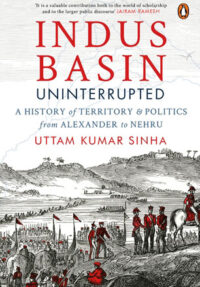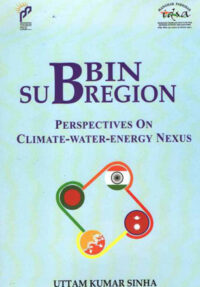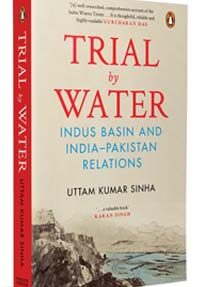Trial by Water: Indus Basin and India-Pakistan Relations
- Publisher: Penguin Random House India
In 1947, the Indian subcontinent was partitioned, and Pakistan was born. A shared heritage, a composite culture and centuries-old bonds between people, all seemed to vanish overnight. Nowhere was this rupture more profound than in the Indus Basin—once a unified lifeline of the region, now fragmented by sovereign borders, its rivers flowing through two nations immediately at odds with each other.
The Indus Waters Treaty was signed in 1960, proving that even bitter adversaries could cooperate over shared resources. Yet, it never brought lasting peace. The treaty was suspended by India in April 2025 as a punitive measure in the wake of the Pahalgam terror attack, and its future remains shrouded in uncertainty. Can it still endure and adapt? Perhaps the time has come for a new arrangement—one that is not just inevitable but essential.
This book traces the turbulent history of the Indus Basin and examines how the Indus Waters Treaty has been shaped by the region’s ever-evolving political dynamics. It explores the role of key leaders on both sides, as well as external pressures, in shaping and reshaping one of the world’s most critical transboundary water agreements.
The Indus Basin has been a witness to conflict, compromise and survival. And if you seek to understand the true nature of India–Pakistan relations, start with the rivers that bind them. Trial by Water leads us in that direction.
- ISBN: 9780143471028,
- Price: ₹ 599/-
- E-copy available
Indus Basin Uninterrupted: A History of Territory and Politics from Alexander to Nehru
- Publisher: Penguin Random House India
The Indus Waters Treaty between India and Pakistan marks six decades, but carries the reflection of several thousand years of history. Indus Basin Uninterrupted, with an easy narration and rich archival material, brings alive a meandering journey of peace, conflict and commerce on the Indus basin. The Indus system of rivers, as a powerful symbol of the passage of time, represents not only the interdependence and interpenetration of land and water, but equally the unfolding of political identities, social churning and economic returns. From Alexander's campaign to Qásim crossing the Indus and laying the foundation of Muslim rule in India; from the foreign invaders and their 'loot and scoot' to the Mughal rulers' perspective on hydrology and water use; from the British 'great game' on the Indus basin to the bitter and bloody Partition; and finally, as a historical pause, the signing of the Indus Waters Treaty—this book is a spectrum of spectacular events, turning points and of personalities and characters and their actions that were full of marvel.
- ISBN: 9780670094486,
- Price: ₹ 799.00
Arctic: Commerce, Governance and Policy
Publisher: Routledge
ISBN: 978-1-13-885599-1
Price: $145.00
In May 2013, China, India, Japan, Singapore and South Korea (Asia 5) were given status as permanent observers in the Arctic Council. It was a symbolic and significant moment in the history of Arctic affairs. The list of stakeholders in the Arctic has now expanded to include both the Arctic littoral states and the five Asian states. The drivers and policies of these stakeholders on the Arctic vary, but research on climate change, possible changes to the global energy and minerals markets, adherence to international norms like the UNCLOS, and geopolitical considerations are issues of concern.
Water Sector in Pakistan: Policy, Politics, Management
This monograph undertakes a descriptive analysis of the water sector in Pakistan and underlines issues related to Pakistan’s water policies, politics and management practices. It argues that domestic water management is perhaps one of the key areas which requires urgent attention in Pakistan.












